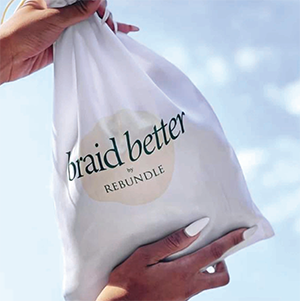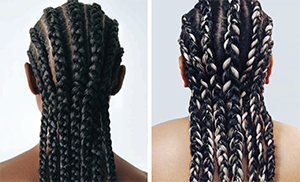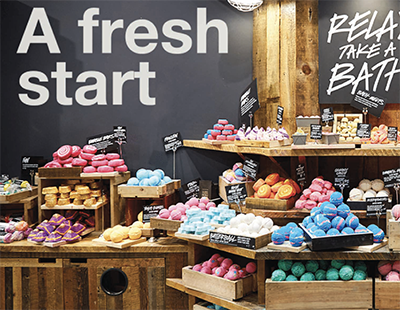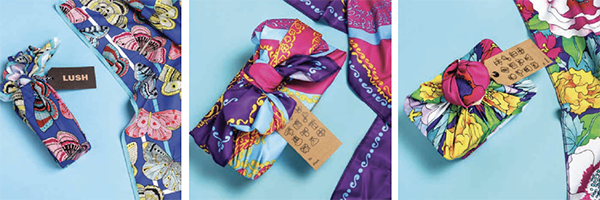Plant-based Ingredients and Slim Packages
Lush and Rebundle, socially responsible beauty companies
Covid-19 crisis is seemingly never ending after the spread of a new Omicron variant. Just last year, when we faced the first wave of the virus, we never imagined that the pandemic would dominate our daily lives for so long. Last three years or so, the consumption of PPEs including facial masks and gloves kept increasing, and more restaurants and coffee shops offer disposable food containers. Consequently, the plastic waste is testing the limits of the already serious environmental damages caused by human.
Many companies have realized the seriousness of environmental challenges and adopted resolutions in response. The automobile industry is shifting gears toward the electric vehicles instead of internal combustion engines, and Walmart and Target are adopting paper bags to replace plastic bags. Starbucks now offers a cup that does not require a straw in its effort to reduce the use of disposable straws.
Beauty supply industry is still extensively using disposable packaging materials for cartoons, cases, and display units, and plastic packaging is getting even bulkier. For hair products, cardboards, plastic molds, and Styrofoam are widely used to protect the volume and curl of the hair, and a sizable tag is attached for display. For non-human hairs such as synthetic hair and braids, recycling is hardly an option.

A pile of discarded cosmetics container @waste4change.com
On the other hand, cosmetics and bath product brand Lush is introducing slim packages, and a braiding hair company is trying to recycle plastic braiding hairs that are disposed at salons. These companies are fulfilling their social responsibility and reducing the environmental damages.
Rebundle’s Plant-based braiding hair got media praises.

Rebundle hair packaging—instead of disposable plastic and paper, a silk bag wraps the product. ©Rebundle
Rebundle is a braiding hair company founded in 2019. Despite being a little-known and small startup, it received highlights from the news media. It raised more than $110,000 from cosmetics company Glossier’s scholarship and other programs as a Black-owned beauty business, and it was featured in many magazines and online media including Teen Vogue, Byrdie, Popsugar, Bustle, Allure, Strategist, Beauty Independent, and Sheen, Inc. Like many startups, it initially struggled financially, but it could focus on the product development after securing sponsorship.
The owner of Rebundle, Ciara Imani May, was a girl who loved braiding styles. As she had very sensitive scalp and many allergies, she had to endure great pain to wear a pretty hairdo. She virtually tried all braiding hairs on the market, but nothing seemed to relieve her pain. She learned that Kanekalon is made of a plastic coated with acryl fiber and that she was allergic to a chemical used in its manufacturing process. Subsequently, she stepped up to bring a new product to the market.

Ciara Imani May, Owner of Rebundle @Ciara Imani May
All products by Rebundle are made of plant-based fibers. Although the development was not without hardship, with help from scientists she came up with various banana fiber configurations in consideration of 6-8 fiber types. Extracted banana fibers are processed for a desirable texture, and they go through an eco-friendly textile process and dying. The resulting products are certified vegan by People for Ethnic Treatment for Animal (PETA). Rebundle promotes its products as the only way to be free of allergies and discomfort caused by plastic braids.

Products by Rebundle ©Rebundle
Rebundle products are sold at $20-35 per 3.5 oz depending on color and the difficulty of processing. You typically need 4-6 bundles to complete a hairdo. While it is made in the U.S.A, it can’t be mass-produced at the moment. Consequently, the price tag is hefty. It resists up to 400°F and comes ready to be curled.

Banana fiber being processed ©Sustainable-fashion-collective.com

Close-up shot of a product made of banana fiber ©unnatisilks.com
Nonetheless, many characteristics desired by braiders are missing in plant-based banana fibers, so further research and investment seems necessary. Tough fibers extracted from banana leaves must be thick and feel differently in hand. Thick braiding hairs like the hemp fiber will unlikely be chosen by the braiders. Braiding requires substantial time and labor. As the technique requires a lot of manual labor, braiding hairs must be soft to touch, and to be recognized as a good quality product, the resulting braids must be frizzy hair free, smooth, and straight. Despite all these, there is a reason that this company got the attention. It is carrying the weight of being socially responsible.
Rebundle asks salons to send used braiding hair to them. The braiding hairs are sent to a processing center to be recycled into raw materials for outdoor furniture, garden tools, and outdoor gears. So far, they have collected 235 lbs of braids, and the hair skipped the waste yard and was recycled. Of course, you would require a great amount of braids to make a piece of furniture. Nonetheless, you should pay attention and respect to their attempt and underlying effort. If major hair product companies participate in these movement for carrying the weight of being socially responsible, not only Black customers but also others will start to pay attention, not to mention that it would be great for brand image.
Lush—paper bags and cloth wraps instead of plastic
As mentioned above, the wasteful packaging of beauty products is a social issue that shouldn’t be overlooked. Started in a small town in England in 1995, Lush gained popularity by using no animal ingredient and was recognized as an animal cruelty free brand. The entire world soon paid attention to its exclusively plant-based products. They gained the reputation without a single paid advertisement, and beyond Europe, it became the top natural cosmetics brand in America.
Lush placed their brand philosophies in front of their products, and their social responsibility and sincerity moved the consumer’s heart.

Lush products ©Lush.com
Its flagship product, which was behind the global popularity of Lush, was bath bombs, which were one of its first products. Lush also increased the fandom by sharing how to make its bath bombs so that consumers can make them at home.
In addition to using plant-based ingredients, the products are sold with little or no packaging. You will see many of Lush products displayed and sold naked without any packaging at a Lush retail store, including those odd shaped soaps. When a customer asks for a certain amount of certain soap, they cut the soap into a desired size and wrap it in a recycled paper. As the product is not covered, you can directly touch and smell the items before purchase.
For liquid products that require containers, Lush uses 100% recyclable containers. To reduce the use of paper bags, they also tried cloth wraps that can be used by customers as a scarf or hair wrap. With drastic colored patterns, the scented product wrapped in a scarf with a pretty knot makes a great gift.

Lush’s knot-wrap ©Lush.com
In view of the two brands, you would think a trivial but innovative idea is required for the beauty supply industry. Lush made a big success with just social responsibility without paid advertisement. Especially for beauty supplies that are local businesses, the support from the community is of utmost importance. Supporting the community through scholarships, support for single moms, and collaboration with beauty schools can create goodwill and generate goodwill with the local residents, and reducing packaging materials and carrying eco-friendly products might spread the words of mouth as a socially responsible beauty supply store.
Hair Trend BY Bora Chung
BNB Magazine FEB 2022 ©bnbmag.com